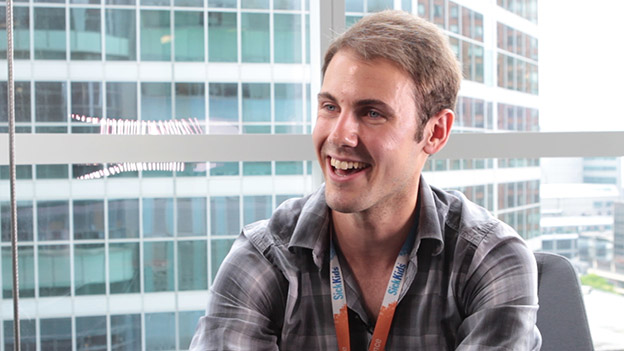Science grad to spend summer researching at hospital that saved his life

Ben Diplock says he doesn’t need to be a scientist to know that exercise helped him recover from the post-operative effects of a brain tumour.
But now that he is one, he’s working to prove it – and he’s doing it at the same hospital where his life was once saved.
Diplock, a psychology, neuroscience and behaviour graduand who will receive his degree Thursday, is spending the summer working with Donald Mabbott at Toronto’s Hospital for Sick Children.
That’s where Diplock had his benign tumour removed more than 15 years ago and where he’s now working to understand if physical exercise helps strengthen connections in the brains of those who have had brain tumours removed.
Watch: Ben Diplock goes from patient to researcher at Sick Kids (CBC)
“For me, it’s a dream come true to work here,” he says. “I was able to recover so well because I had such a good team around me. It’s really exciting to now be part of a team working to help others in the same way.”
Diplock suffered from migraines as a child, but his tumour wasn’t discovered until he took a tumble into a ditch – even though he thought he was walking perfectly straight.
An MRI revealed the tumour’s presence, and Diplock and his family made plans to have it removed. He was only eight years old at the time of the seven-hour surgery.
“I remember the doctors pushing me into the operating room on a toy cart and my parents waving goodbye and telling me they’d see me soon,” he says. “But they didn’t really know if they ever would.”
After the surgery, doctors told Diplock’s family that he might never ride a bike, drive a car, or even learn properly.
But with the help of his family, friends and doctors, Diplock was able to excel, eventually enrolling at McMaster, where he was involved in everything from MacServe service-learning trips to undergraduate research in Patrick Bennett’s vision and cognitive neuroscience lab and Geoffrey Hall’s developmental neuroscience lab.
He’s one of more than 1,000 graduands who will receive their science degrees at June 12 ceremonies being held in downtown Hamilton.

